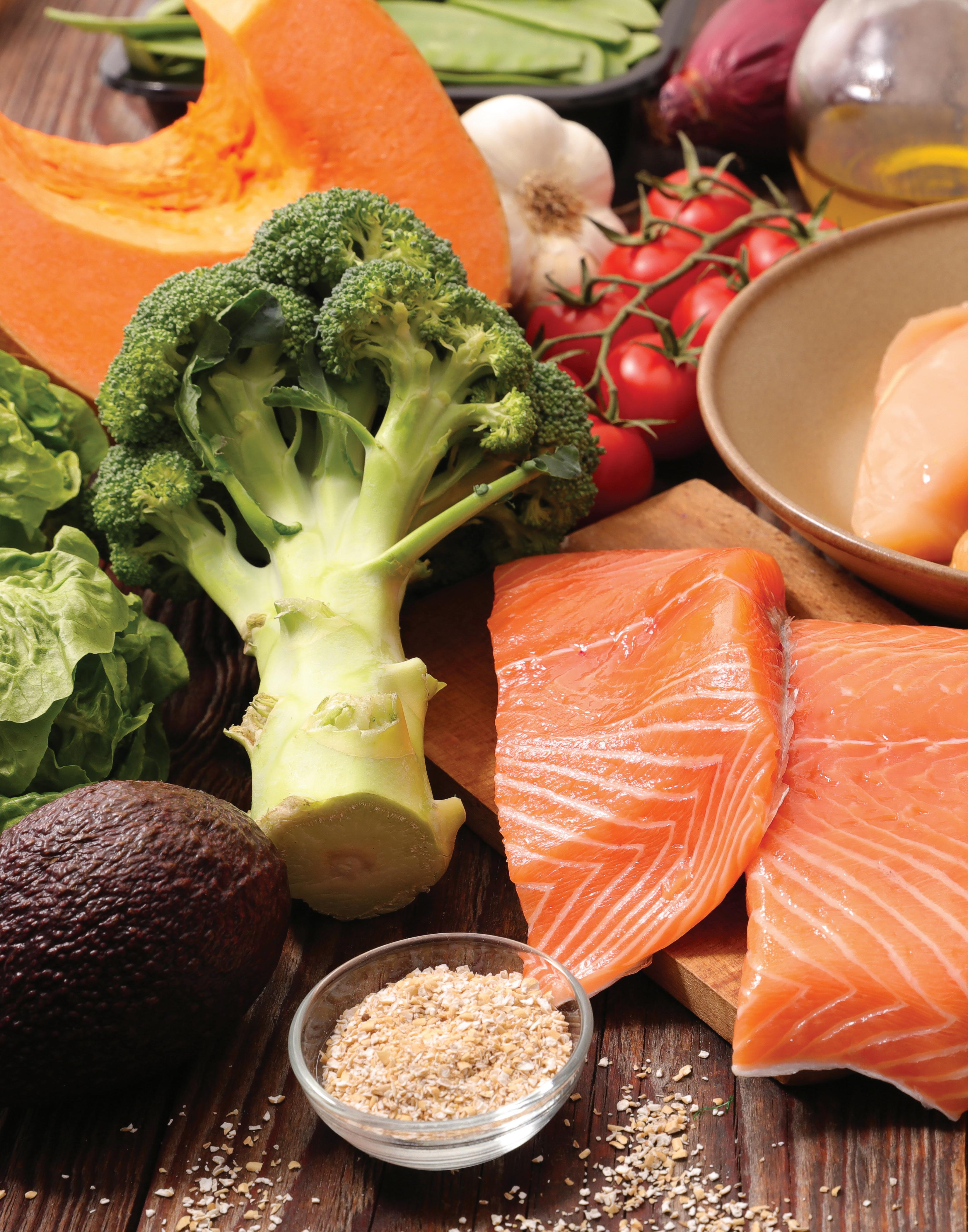
4 minute read
Tips on How to Avoid Fad Diets by Esti Asher
HOME AND HEALTH CENTER Tips on How to Avoid Fad Diets
By Esti Asher, MS, RDN, LD
One of my favorite topics to present on is addressing red flags for fad diets. I feel it is my privilege and part of my professional responsibility to help empower people to eat in a way that helps them feel good while also helping their body function optimally. Also, unlike fad diets, my approach is positive, practical, and sustainable.
After the yomim tovim, many people find themselves in search of a diet, program, guidelines, and/or strategies to achieve weight loss. As consumers, we are bombarded with information that is often contradictory, intimidating, and confusing. Individual foods and food groups are often labeled (wrongfully) as “good” or “bad” – as if living a healthy lifestyle were black and white. Many individuals – whether they have the proper credentials or not – feel they are qualified to share their nutritional guidance.
In this article, I provide guidelines and tips on what to include within a healthy and well-balanced diet and what diet/nutrition advice to run away from. These guidelines will help you feel more empowered and confident so you can avoid the non-evidence-based fad diets, which will save you time, money, frustration, and sometimes avoid dangers to your health, among other benefits.
Esti Asher, MS, RDN, LD is a Registered, Dietitian, nutritionist and self-care enthusiast on a mission to help women reach their ultimate health and wellbeing potential inside and out. She shares credible, clear and inspiring nutrition information with women via her virtual private practice. To contact Esti with feedback or inquiries regarding her nutritional services, please e-mail her at: esti@ estiashernutrition.com or visit estiashernutrition.com.
Disclaimer: The information in this article is for informational purposes only. This article is not meant to be used as medical nutrition therapy and thus is not intended to diagnose, treat, cure, or prevent any health conditions. Please consult with your physician if you have specific questions regarding your health.
So, what does a healthy and well-balanced diet look like? Generally speaking (with the exception of medically prescribed diets for a few medical conditions), it includes all of the criteria below. Therefore, if you hear about a diet or weight loss program that contradicts any of these criteria, you will know that it is most likely not a healthy and sustainable approach to follow.
1
All food groups are included. One of the most basic concepts of nutrition is the fact that food is our fuel. Additionally, the different food groups -- fruits, vegetables, protein, grains, and dairy, all contribute towards different functions within our body. While there is overlap between different food groups, in general, if a food group is missing then an important part of what our body needs is missing, as well. Therefore, if a diet or weight loss program does not include all food groups, consider that to be a red flag.
2
3

Adequate amounts are provided. As we mentioned earlier, food is the fuel for our body. It is essential that we provide our body with adequate amounts of that fuel – vitamins, minerals, hydration, calories and nutrients. In order for our body to function optimally, we need to nourish our body with what it requires, not deprive and restrict it. All foods fit. This is a simple concept that seems to contradict a high percentage of diet and weight loss programs that are promoted. If there is a list of foods that are considered forbidden or restricted, that is another red flag. While the phrase “everything in moderation” sounds cliché, it is definitely true. All foods can find their way into a healthy and well-balanced way of eating. Often, people who are in-tune with their body cues and focused on their health goals, choose to limit certain foods; however, they should be doing this because it is their choice, not because they are under the impression that a particular food is forbidden. Even when weight loss is the goal, you can still enjoy challah, desserts, and other foods – in moderation – because all foods fit! This helps with sustainability and with having a more positive and healthier mindset as well.
4
Products are not necessary. We can live a healthy lifestyle and even lose weight (if this is the goal) by eating regular food and drinking regular drinks that can be found in a basic grocery store. Under no circumstances should someone be convinced that they need to buy products in order to be successful with meeting their health and weight loss goals. Products such as pre-packaged foods, bars and shakes may be helpful at times, but are definitely not necessary and can be very expensive. Also, it is not practical to rely on products in the long term, which is another reason to limit one’s dependence on them.
5
Flexibility. We are busy people with a lot to balance. Even if we have structure and a routine, there is often something that comes up which can interfere with a consistent and predictable schedule. It is important to follow a way of eating that is flexible, as opposed to rigid, especially when there is a deviation in routine. Instead of being limited to a few specific foods and portion sizes, allow yourself the opportunity to choose from a buffet at an event or simcha, a menu from a restaurant, or a frozen option from your freezer.
Now that you are equipped with these tips, you are well on your way to achieving and maintaining your health (and/or weight loss) goal(s)! Questions? Comments? I would love to hear from you!










